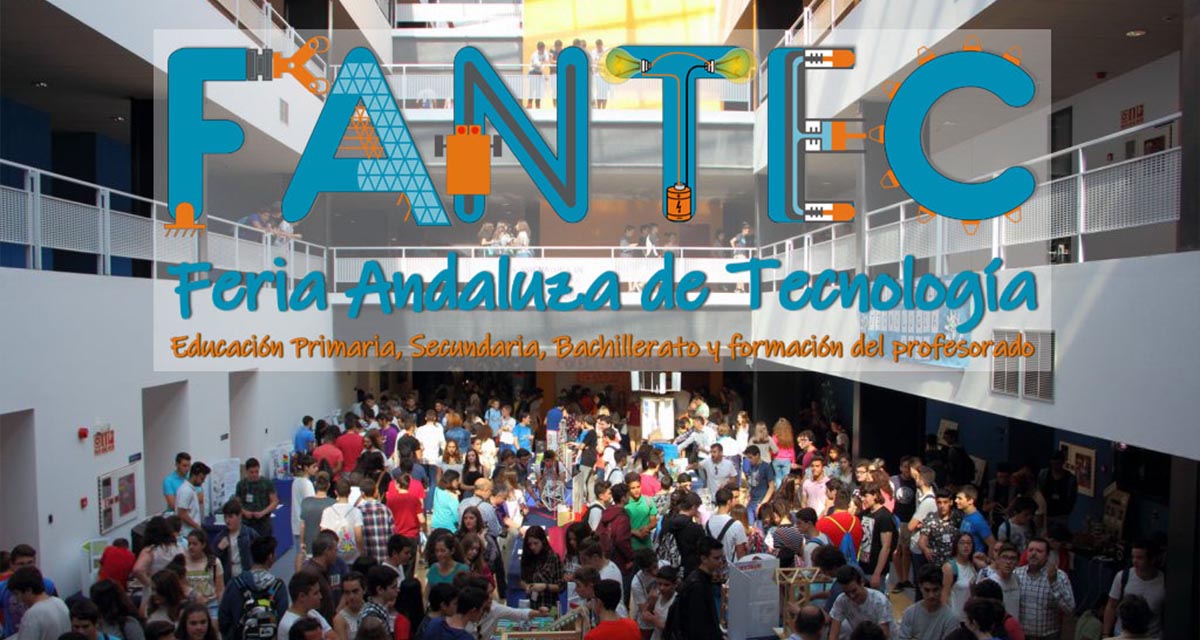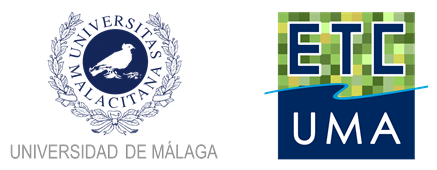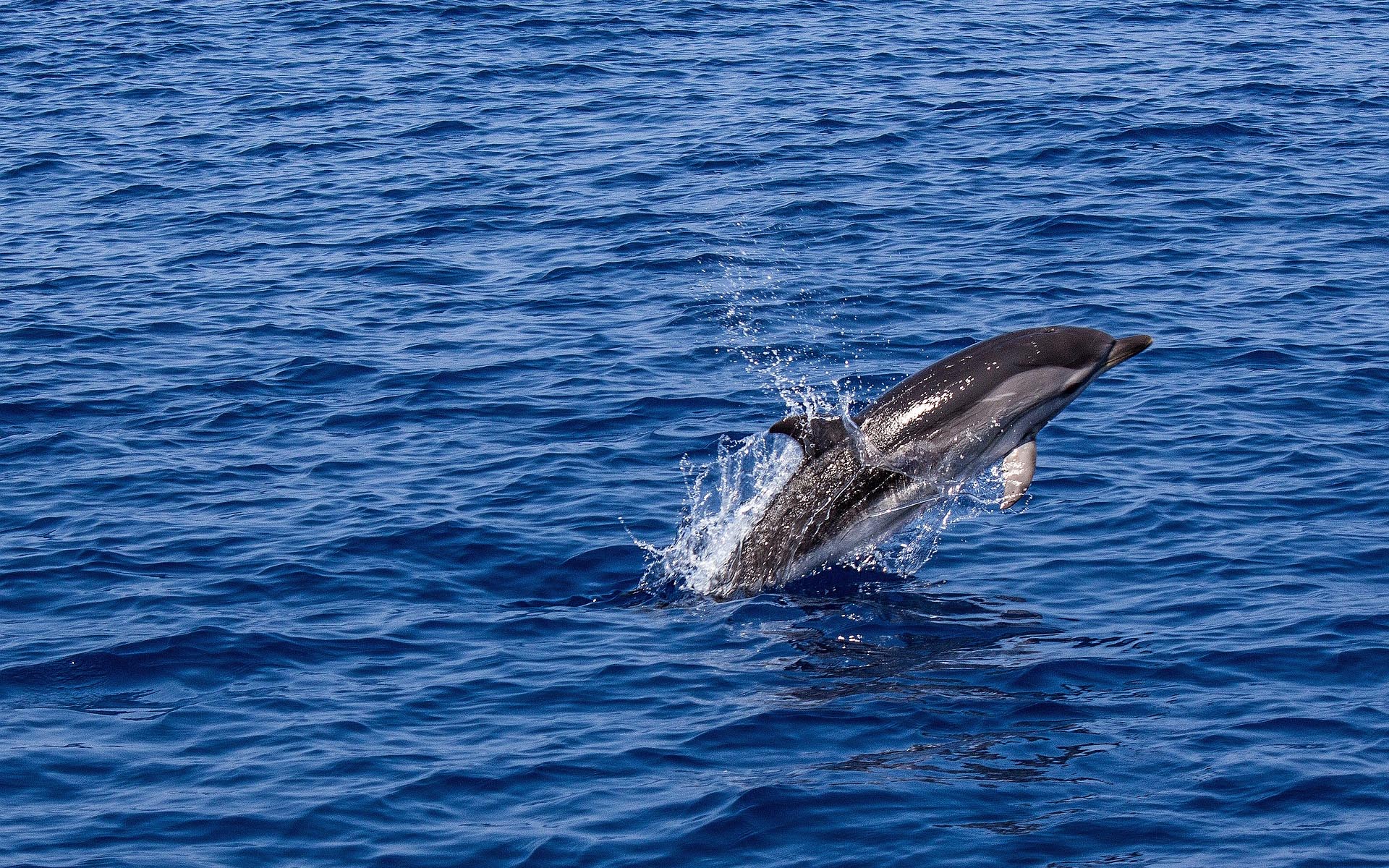European topic centre - university of malaga
Meet our team members

Barbara Bauer
Research Support Officer
barbara.bauer@uma.es
--- --- ---
Barbara Bauer is an experienced ecologist with over a decade of expertise in aquatic ecology, biodiversity conservation, and environmental management. Holding a PhD in Aquatic Ecology from the University of Potsdam, she has developed a strong foundation in analysing the impacts of climate change on spatial and temporal biodiversity patterns.
Barbara is leveraging data analysis and stakeholder collaboration to inform decision-making in marine ecosystem management. Currently, as a Research Officer at ETC-UMA, she is mainly working on projects on related to monitoring the effectiveness of biodiversity management under different figures of conservation, in addition to analysing mobile species distributions and the pressures exerted on them.
Barbara’s skills include geo-analytics, ecosystem modeling, and tailored communication to scientific, policy, and public audiences. She has contributed to over 20 peer-reviewed publications.
Related projects
RESOURCES
Journal Articles
Rodríguez-Rodríguez, D.; Sánchez-Espinosa, A.; Abdul-Malak, D.
Potential contribution of OECMs to international area-based conservation targets in a biodiversity rich country, Spain Journal Article
In: Journal for Nature Conservation, vol. 62, 2021.
Abstract | Links | BibTeX | Tags: Biodiversity, Conservation and management, Ecosystem, Environmental conservation, Marine protected areas, Protected areas
@article{Rodríguez-Rodríguez2021b,
title = {Potential contribution of OECMs to international area-based conservation targets in a biodiversity rich country, Spain},
author = {D. Rodríguez-Rodríguez and A. Sánchez-Espinosa and D. Abdul-Malak},
url = {https://doi.org/10.1016/j.jnc.2021.126019},
doi = {10.1016/j.jnc.2021.126019},
year = {2021},
date = {2021-05-15},
journal = {Journal for Nature Conservation},
volume = {62},
abstract = {Other effective area-based conservation measures (OECMs) are new conservation tools intended to complement protected areas (PAs) at achieving effective biodiversity conservation and meeting international area-based targets. However, OECMs have been rarely considered in practical terms until recently. Here, we performed a rapid evaluation on the degree of fulfilment of current area-based international biodiversity targets, post-2020 foreseeable oncoming targets, and ecological targets by considering: 1) Protection coverage; 2) Inclusiveness of important areas for biodiversity; 3) Protection management; 4) Connectivity; and 5) Habitat representation, on land and at sea in Spain, a Euro-Mediterranean, biodiversity rich country. We conducted the evaluation under two scenarios: 1) Scenario 1 considers designated PAs; and 2) Scenario 2, that also includes potential OECMs. In order to generate Scenario 2, thirteen legal categories were assessed against international guidance on OECMs as a first step to screen their likelihood of providing OECMs in Spain. Our findings show that some potentially satisfactory OECM categories such as Public Utility Forests, River Reserves or Geoparks meet the OECM criteria to a large degree and deserve further study. Our results also highlight that Spain is currently well above most foreseeable post-2020 biodiversity targets and even close to some ecological targets using just PAs, except for marine protected area (MPA) management and MPA offshore coverage. Adding OECMs would noticeably improve the country’s figures yet without reaching many exigent ecological targets. OECMs can become a useful, cost-effective biodiversity conservation tool that contributes to international targets under new, more ambitious area-based conservation requirements in Spain and elsewhere. Nevertheless, for this to happen, suitable biodiversity management and monitoring schemes must be ensured.},
keywords = {Biodiversity, Conservation and management, Ecosystem, Environmental conservation, Marine protected areas, Protected areas},
pubstate = {published},
tppubtype = {article}
}
Technical Reports
Abdul-Malak, D.; Schröder, C.; Guitart, C.; Sánchez-Espinosa, A.; Fitoka, E.; Hatziiordanou, L.; Mino, E.; Flink, S.; Silver, E.; Strauch, A.; Ling, M.; Brown, C.; Simonson, W.; Scott, E.; Plasmeijer, A.; Thulin, S.; Philipson, P.; Weise, K.; Höfer, R.; Franke, J.; Guelmami, A.
Enhanced wetland monitoring, assessment and indicators to support European and global environmental policy Technical Report
2019.
Abstract | Links | BibTeX | Tags: Conservation and management, Ecosystem, Geotechnology, SWOS, Wetlands
@techreport{Abdul-Malak2019,
title = {Enhanced wetland monitoring, assessment and indicators to support European and global environmental policy},
author = {D. Abdul-Malak and C. Schröder and C. Guitart and A. Sánchez-Espinosa and E. Fitoka and L. Hatziiordanou and E. Mino and S. Flink and E. Silver and A. Strauch and M. Ling and C. Brown and W. Simonson and E. Scott and A. Plasmeijer and S. Thulin and P. Philipson and K. Weise and R. Höfer and J. Franke and A. Guelmami},
url = {https://www.etc.uma.es/wp-content/uploads/Enhanced_wetland_monitoring_assessment_indicators_support_European_global_environmental_policy.pdf},
year = {2019},
date = {2019-12-31},
abstract = {The 2019 report on Enhanced wetland monitoring, assessment and indicators to support European environmental policyidentifies the links between the Horizon 2020 Satellite-based Wetland Observation Service (SWOS) project outcomes (tools, methodologies and indicators) and existing policy frameworks at European and global levels. It aims to contribute to the refinement of EU Strategies and Directives to better integrate wetland ecosystems, contribute towards a European environmental model for wetland management and maintenance of their ecosystem services, and guide action towards achieving no-net-loss and restoration targets and objectives for wetland ecosystems. The report summarises (in four chapters) how SWOS can ensure a better understanding of wetland ecosystems, and thereby help to trigger further policy developments by improving key elements for wetland management.},
keywords = {Conservation and management, Ecosystem, Geotechnology, SWOS, Wetlands},
pubstate = {published},
tppubtype = {techreport}
}
Presentations
Sánchez-Espinosa, A.; Abdul-Malak, D.; Schröder, C.; Martínez-Murillo, J. F.
01.01.2016.
Links | BibTeX | Tags: Ecosystem, Geotechnology, Land and soil, SWOS, Wetlands
@misc{Sánchez-Espinosa2016b,
title = {Determination of wetland ecosystem boundaries and validation of habitat classifications using remote sensing: Fuente de Piedra (Spain).},
author = {A. Sánchez-Espinosa and D. Abdul-Malak and C. Schröder and J. F. Martínez-Murillo},
url = {/wp-content/uploads/publications/SWOS_EGU2016.pdf},
year = {2016},
date = {2016-01-01},
keywords = {Ecosystem, Geotechnology, Land and soil, SWOS, Wetlands},
pubstate = {published},
tppubtype = {presentation}
}
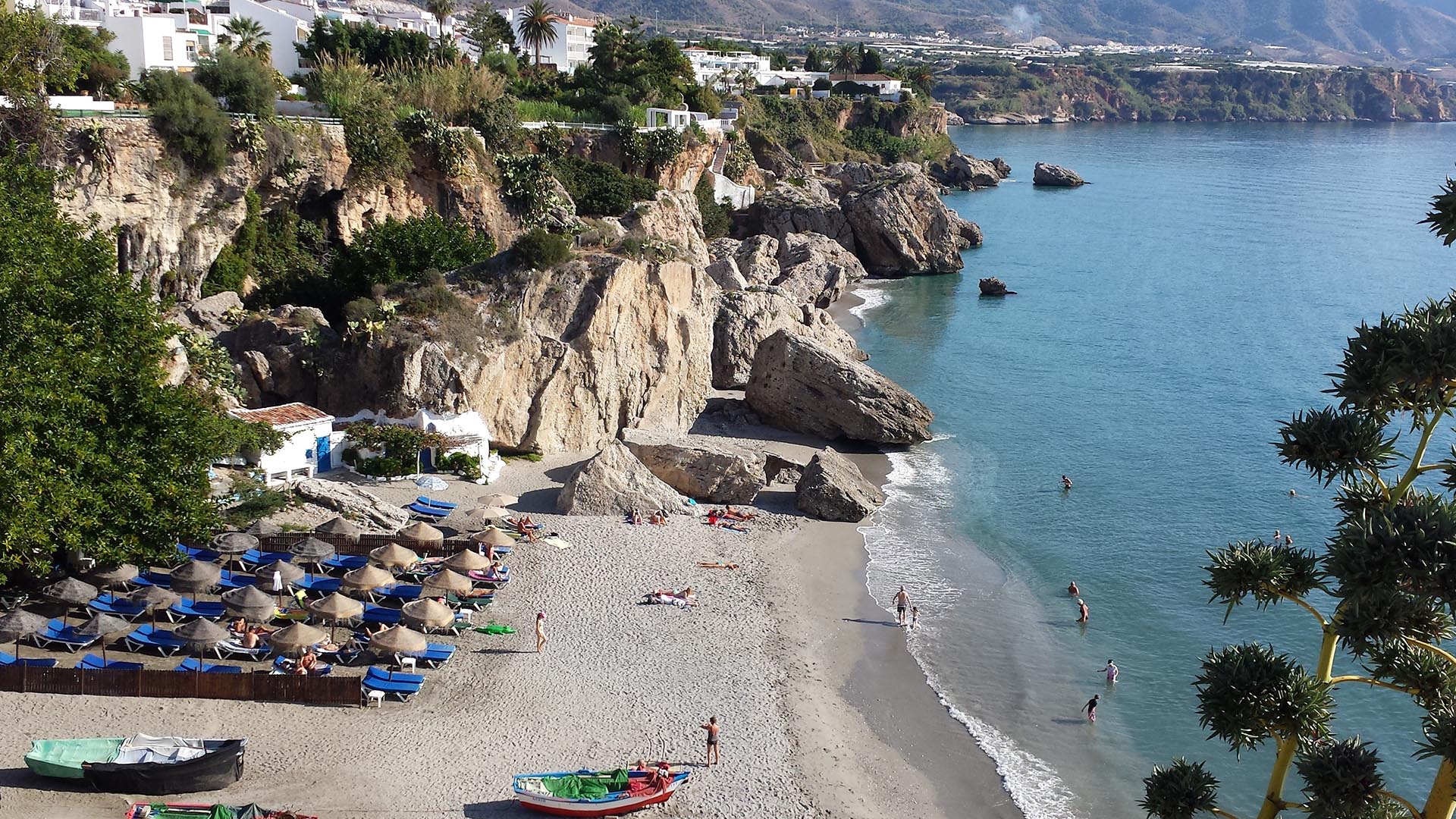
Preparing for a greener and bluer summer 2025
With summer just around the corner, it is this time of the year when many of us get a chance to step back, recharge, and enjoy the outdoors. From ETC-UMA´s side, as we head into the vacation season, we want ...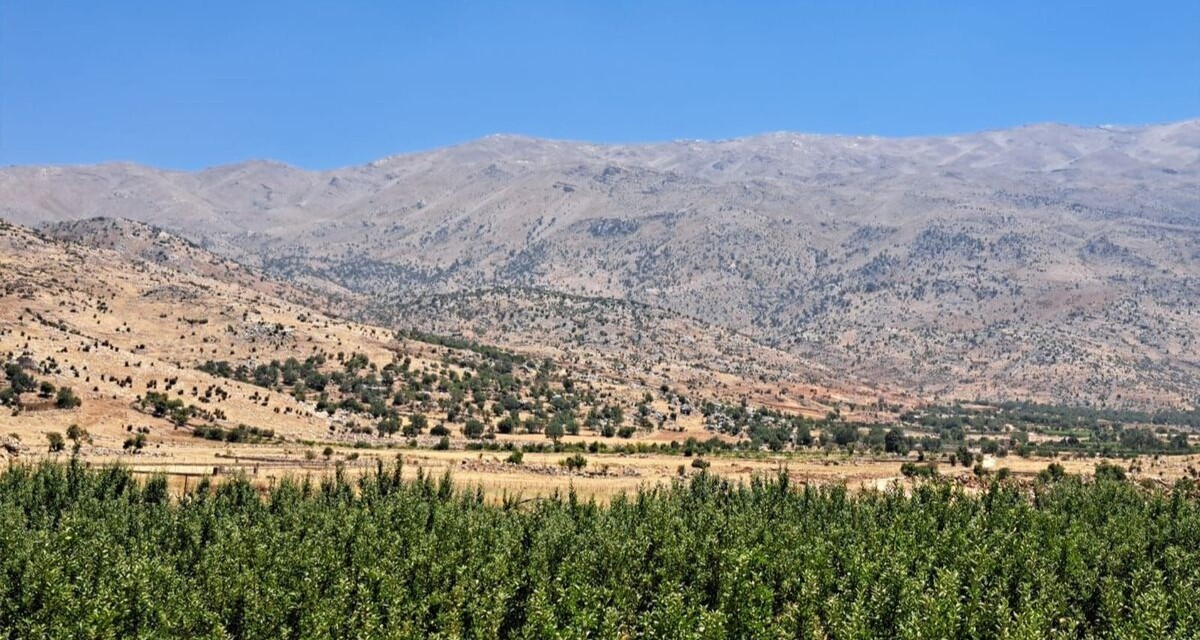
Back in Lebanon with BioConnect: Witnessing nature protection and socioecological resilience in action
As part of ETC-UMA’s role as the external evaluator for the EU-funded BioConnect project, the Centre’s Director, Dania Abdul Malak, carried out a site visit to Lebanon from July 8 to 12 to assess the project’s progress in its third ...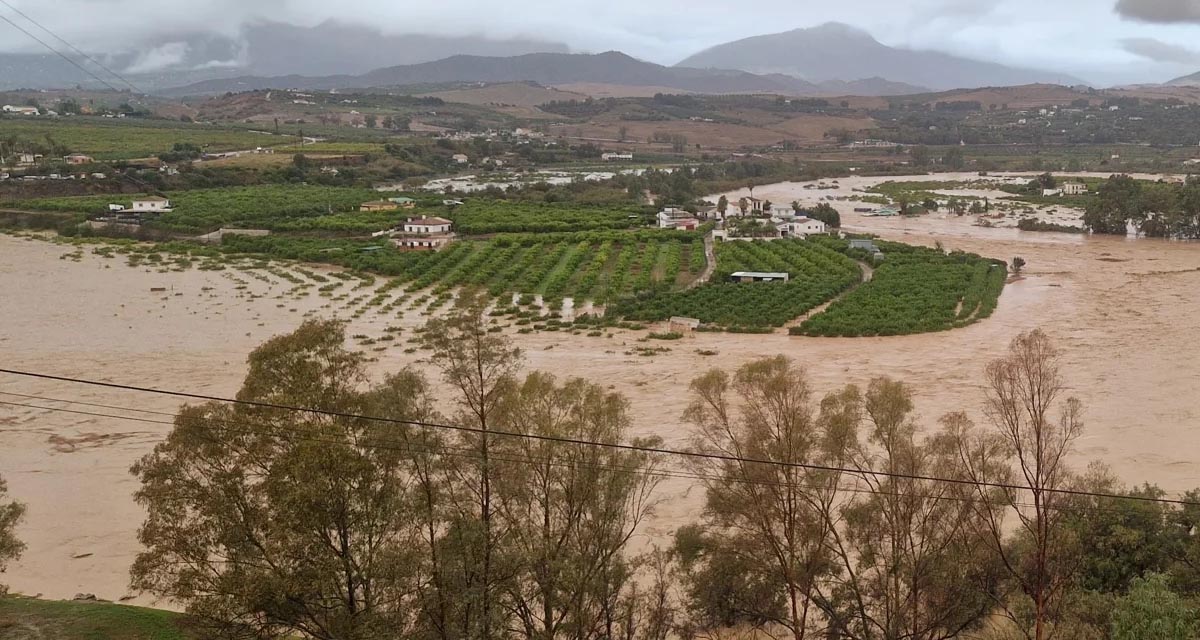
Boosting Climate Resilience: Wetland4Change Project Advances Flood Management Solutions for Mediterranean Coastal Zones
The Mediterranean coastal zone´s combination of multiple severe climate hazards – rising temperatures, water scarcity, sea-level rise, and extreme weather events – makes it a hotspot for highly interconnected climate risks for the ecosystems and societies. Recent catastrophic floods in ...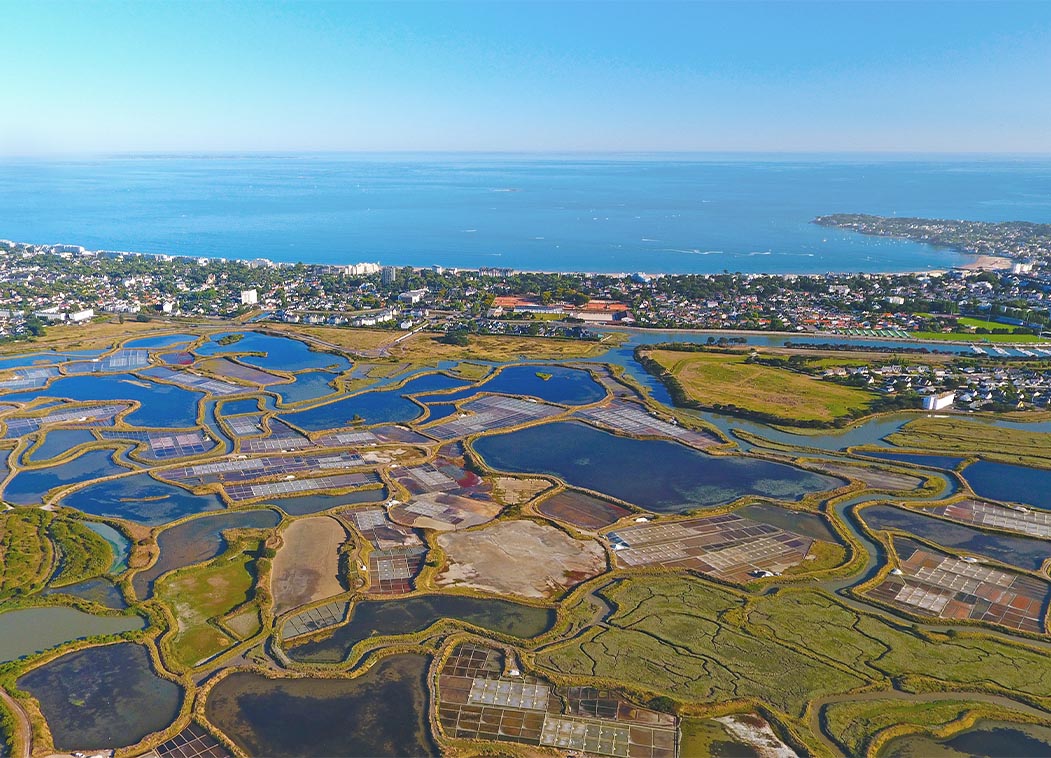
RESTORE4Cs 1st Policy Brief: How can coastal wetlands help achieve EU climate goals?
The first RESTORE4Cs Policy Brief of RESTORE4Cs, “How can coastal wetlands help achieve EU climate goals?“, highlights the importance of European coastal wetlands for reducing Greenhouse Gas emissions. The key messages of the first RESTORE4Cs Policy Brief include: Coastal wetlands are important natural carbon stores, ...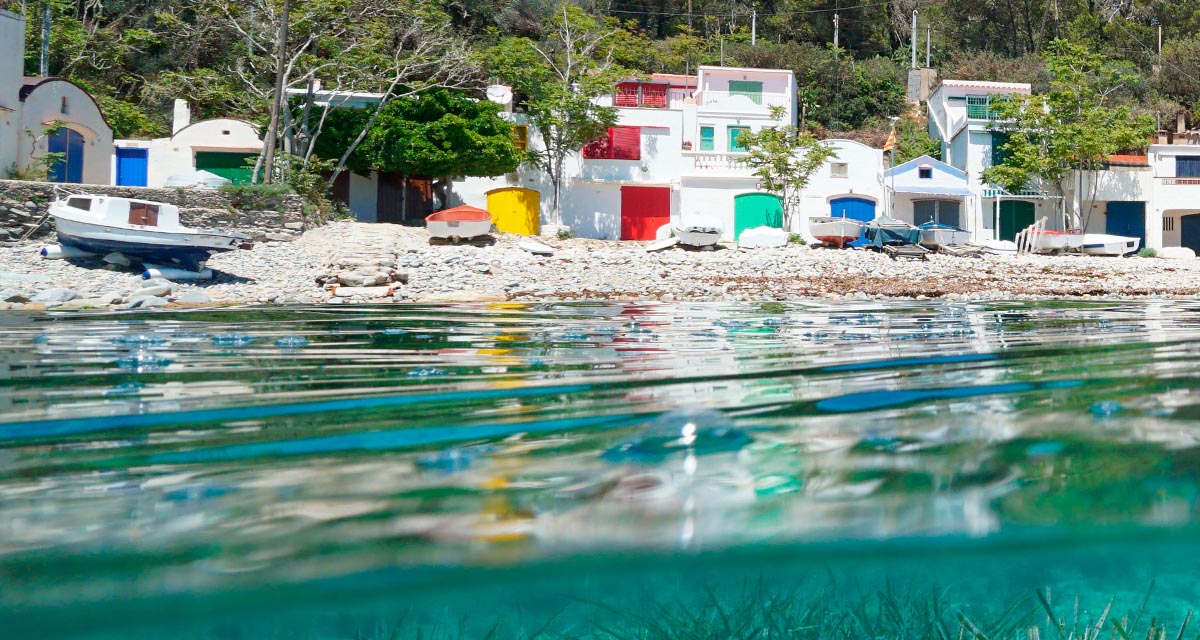
Mapping the Impact of Blue Tourism in the Mediterranean
The IUCN Centre for Mediterranean Cooperation with the support of ETC-UMA in the framework of the Blue Tourism Initiative, has released a comprehensive report entitled “Mapping the Impact of Blue Tourism in the Mediterranean: Vulnerability Assessment of Coastal and Marine ...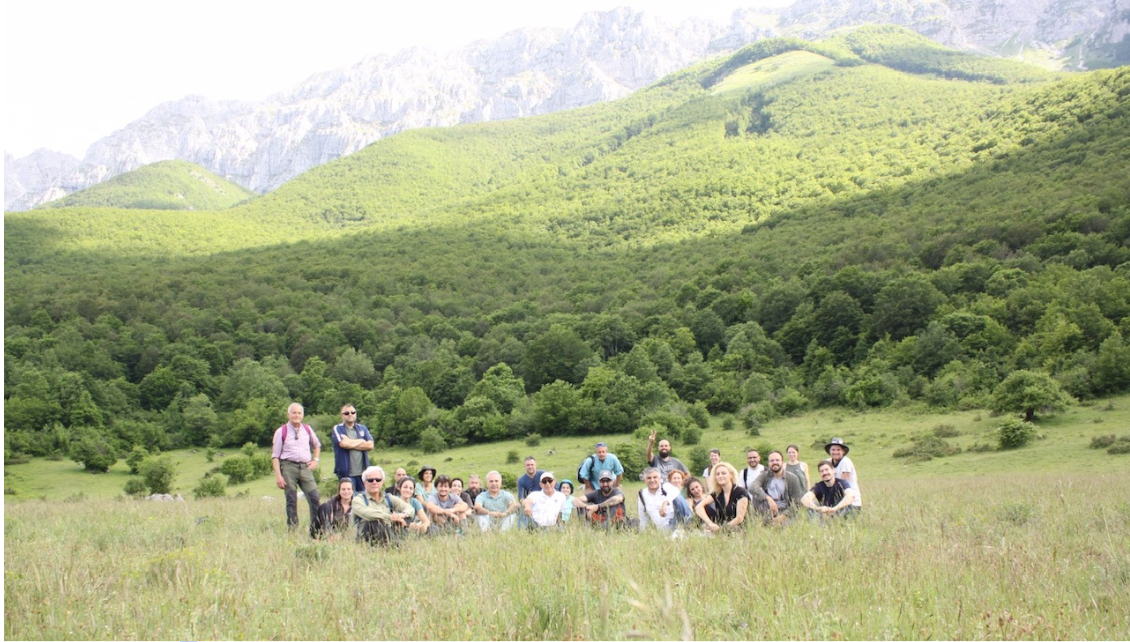
StrategyMedFor Presented at Annual Medforval Meeting 2024
StrategyMedFor was prominently featured at the Annual Medforval Meeting 2024, held from June 5-7 in Fontecchio, Italy. The event brought together 25 practitioners from national parks and natural reserves across 9 Mediterranean countries, providing a valuable platform for StrategyMedFor to ...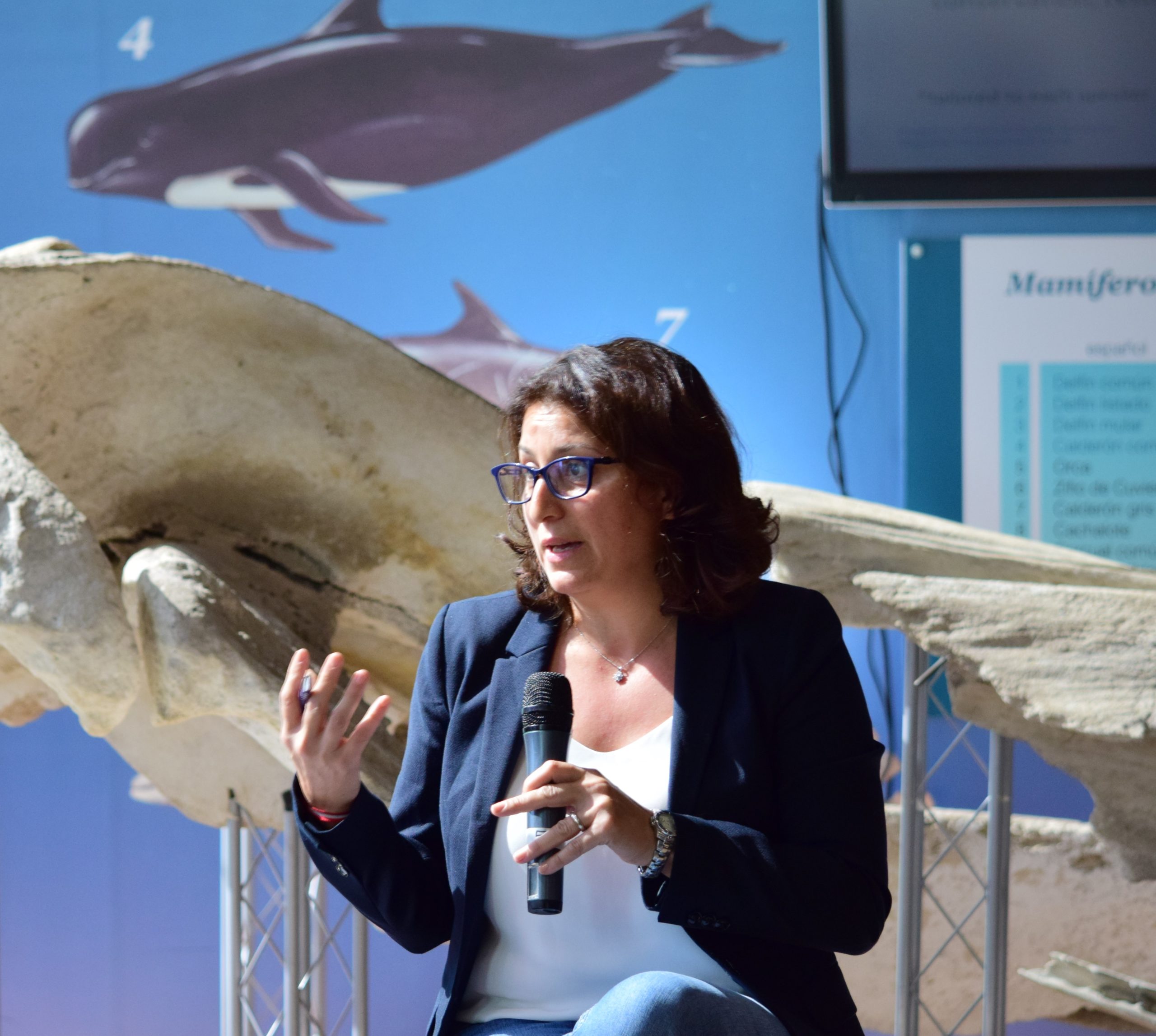
Celebrating leadership in environmental management: an interview with Dania Abdul Malak
From designing integrated ecosystem assessments in Europe and the Mediterranean to transforming outcomes into evidence-based recommendations for regional stakeholders, the European Topic Centre on Spatial Analysis and Synthesis (ETC-UMA) stands as a flagship for territorial cooperation. At the forefront of ...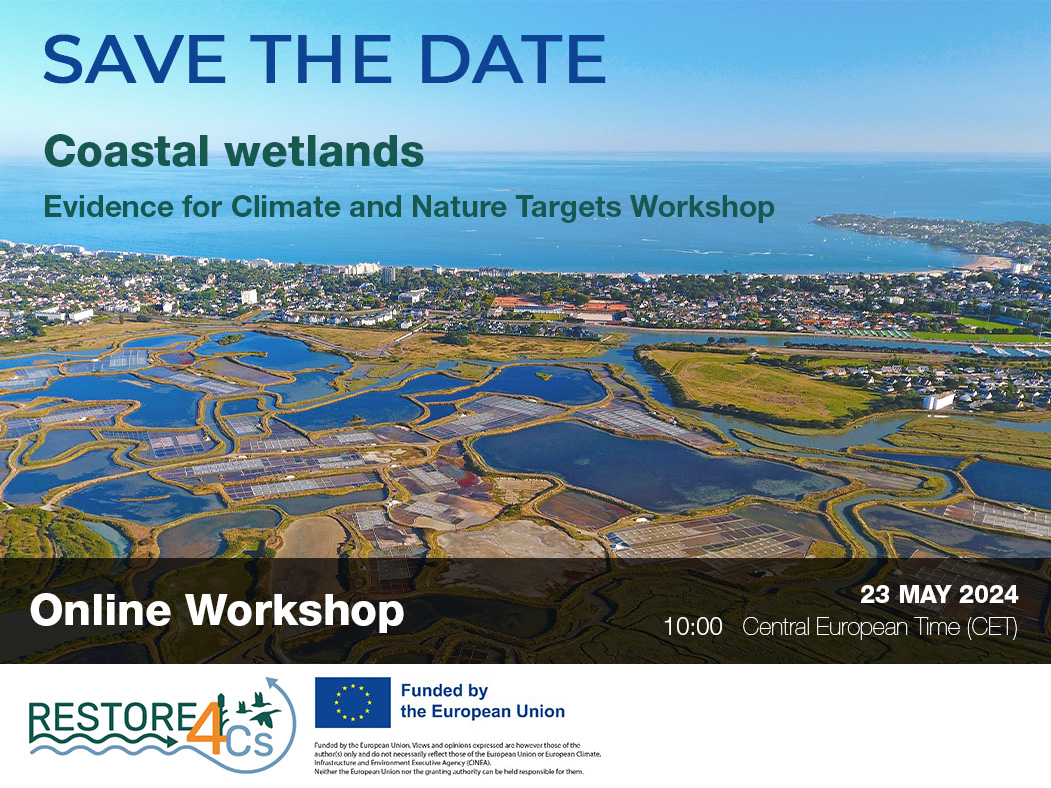
Save the date! Unlocking solutions for coastal conservation in Europe
How can coastal wetlands respond to major European Union objectives such as climate neutrality, biodiversity protection, and pollution reduction? What key role do coastal wetlands play in achieving EU commitments for climate mitigation and biodiversity conservation? The European Topic Centre ...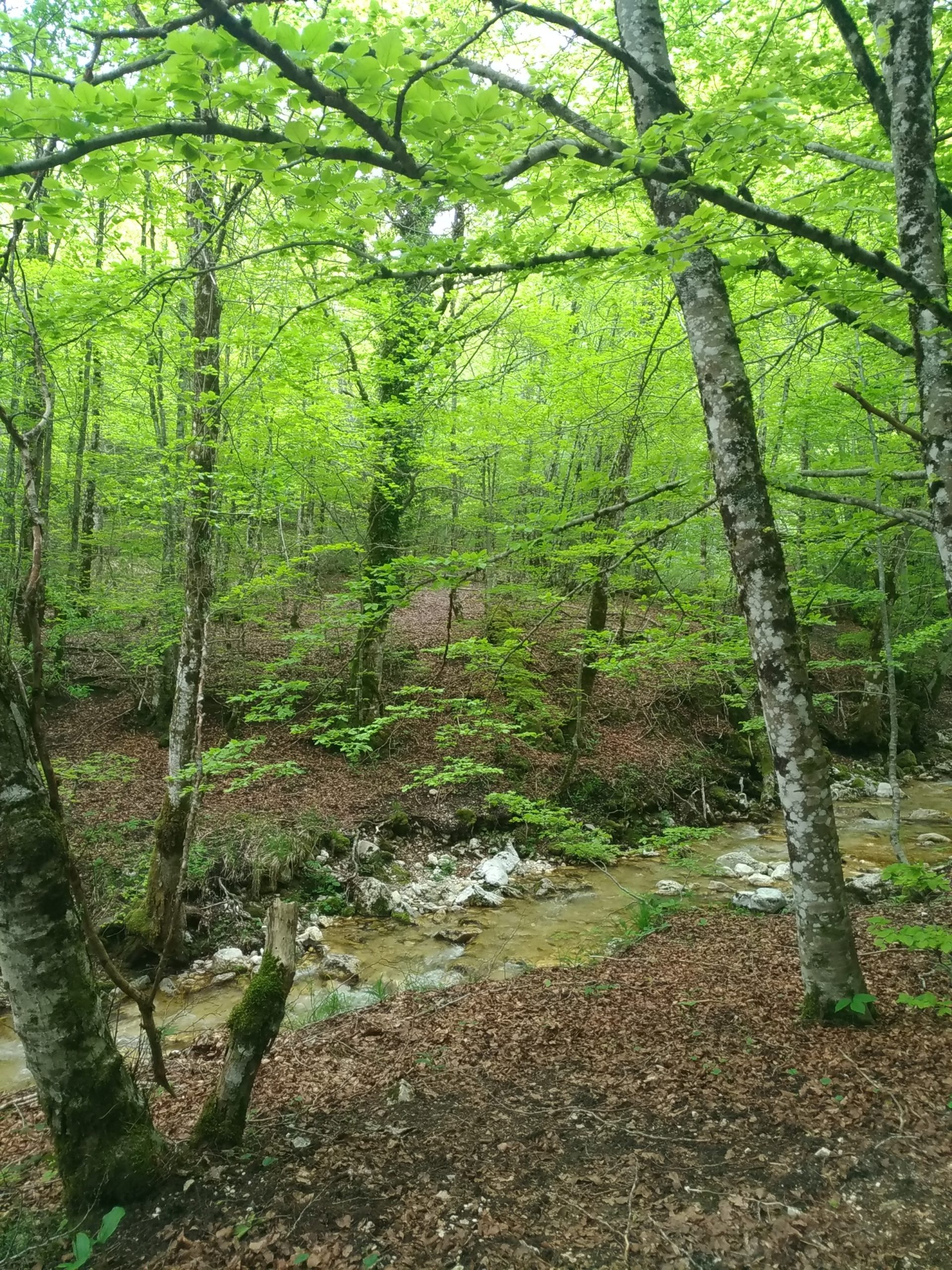
Towards a Strategy for the Sustainable Management of Mediterranean Forests (StrategyMedFor)
The StrategyMedFor project, co-financed by the Interreg Euro-MED programme, was launched at the University of Malaga during a two day meeting that took place on March 18 and 19, 2024. The European Topic Centre on Spatial Analysis and Synthesis (ETC-UMA), ...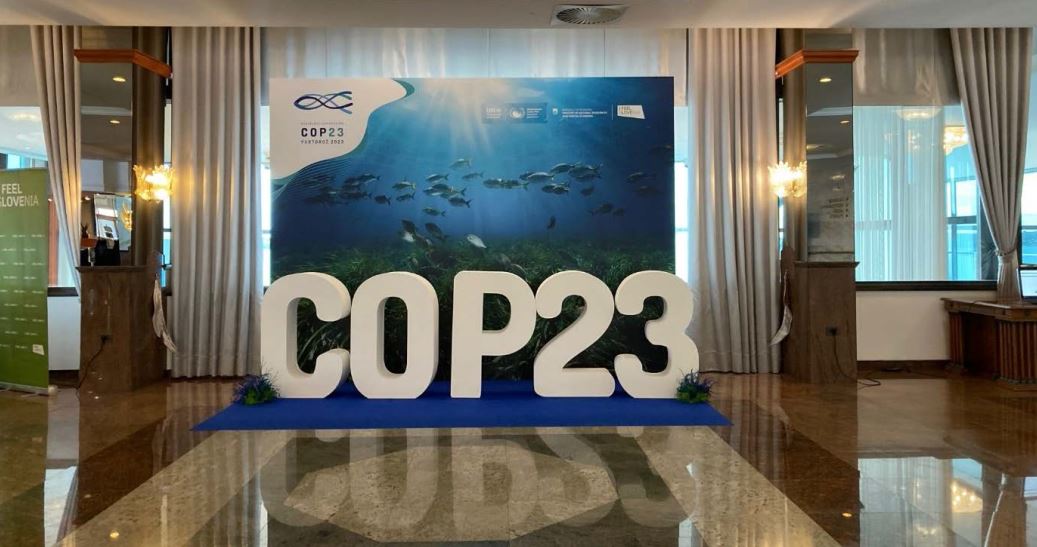
Collaborative science for forests by ETC-UMA showcased in Slovenia during the COP23
As UNEP MAP partner organization, ETC-UMA recently engaged in the organization of a session with Mediterranean institutions under the topic of climate change, entitled: From COASTAL to FOREST ecosystems: Mediterranean Nature-based Solutions to tackle climate change and ensure the Resilience ...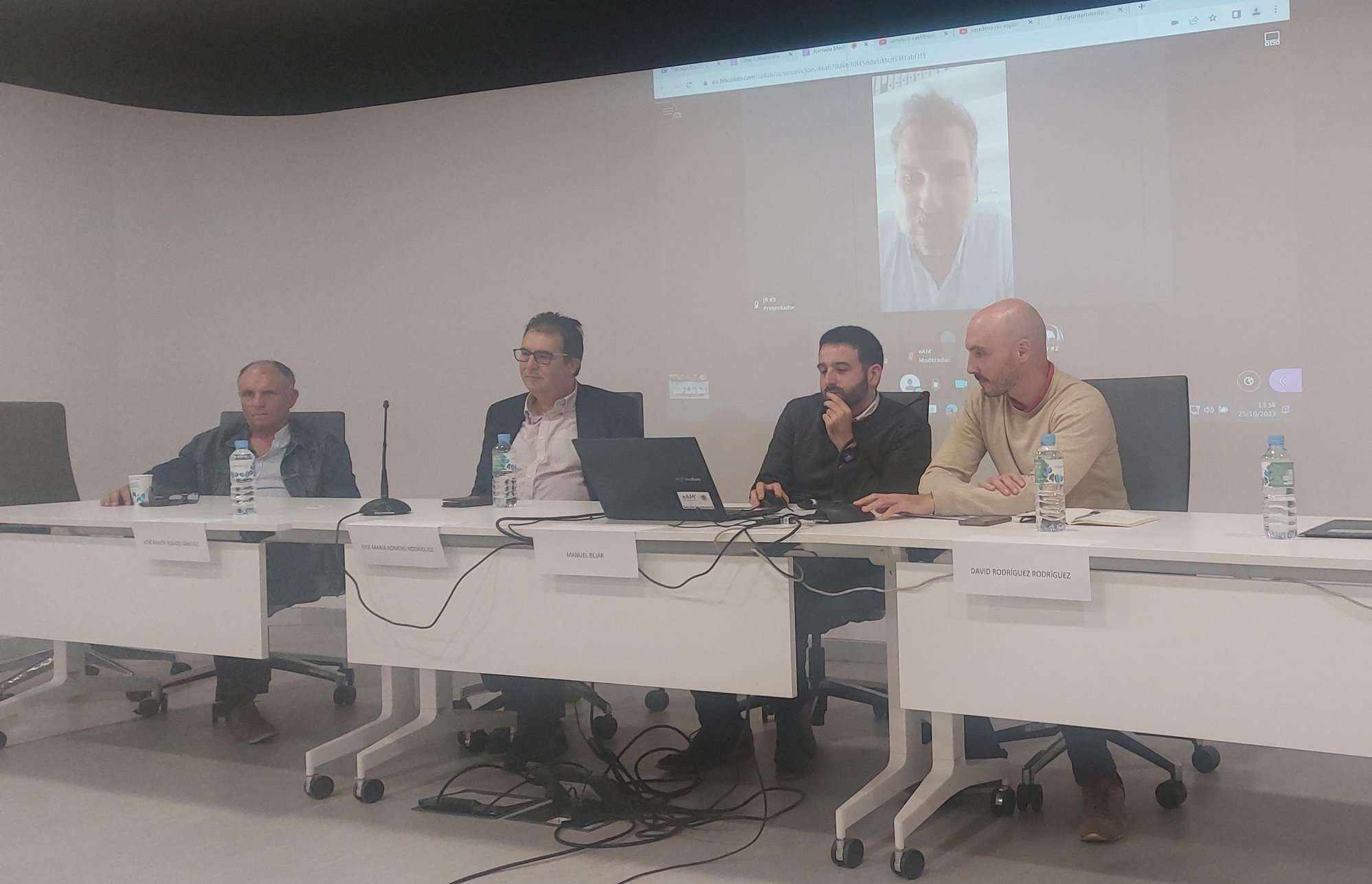
Tools for conserving the Spanish coast
On the initiative of the Instituto Universitario Hábitat Territorio y Digitalización (iHTD) of the University of Malaga, around 70 representatives of Spanish public administrations, researchers, architecture and environmental science players and civil society signed up to the second debate on ...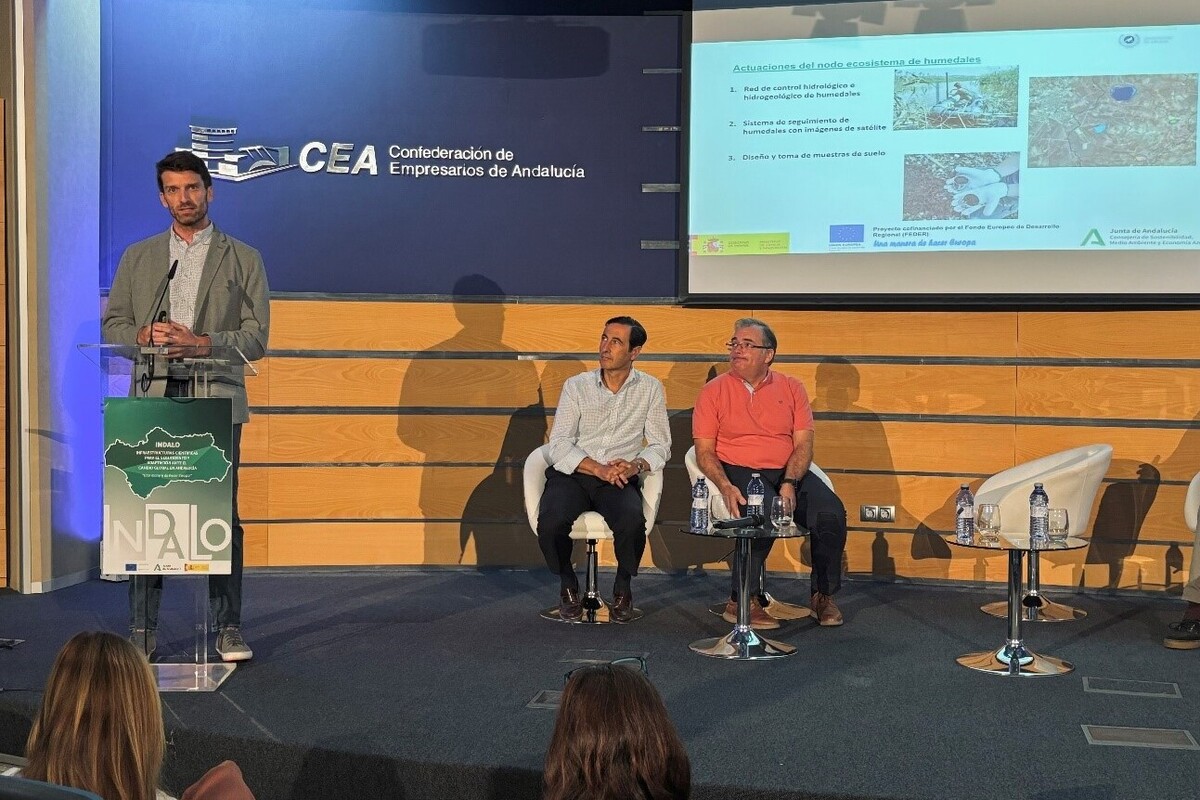
GreenEye System: a cloud-based system to monitor wetlands in Andalusia
Developed in the frame of the LifeWatch INDALO project cofinanced by the European Regional Development Fund (ERDF) for the study of biodiversity and global change in Andalucia, GreenEye System, this new cloud-based monitoring system, provides useful tools for wetlands’ assessment, ...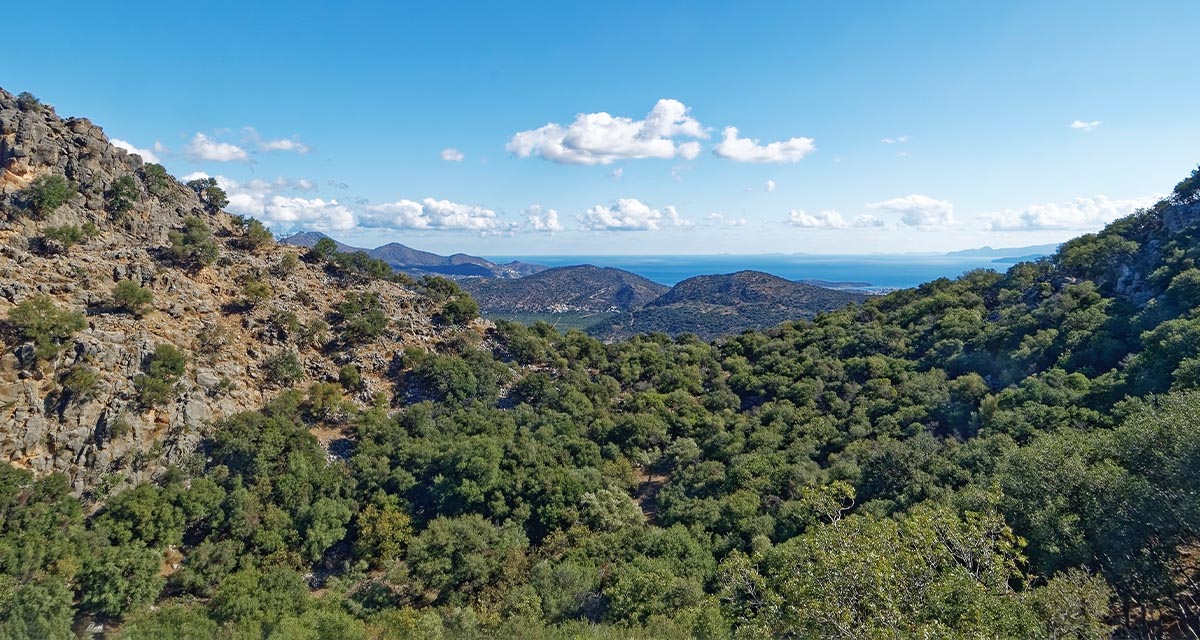
Looking back and forth to Mediterranean Forests
Timely published to enrich the knowledge available to fight fires and climate change challenges after an extremely hot summer, the proceedings of the Seventh Mediterranean Forest Week “Forest and Ecosystem Restoration for the next Mediterranean Generations” held from 21 to ...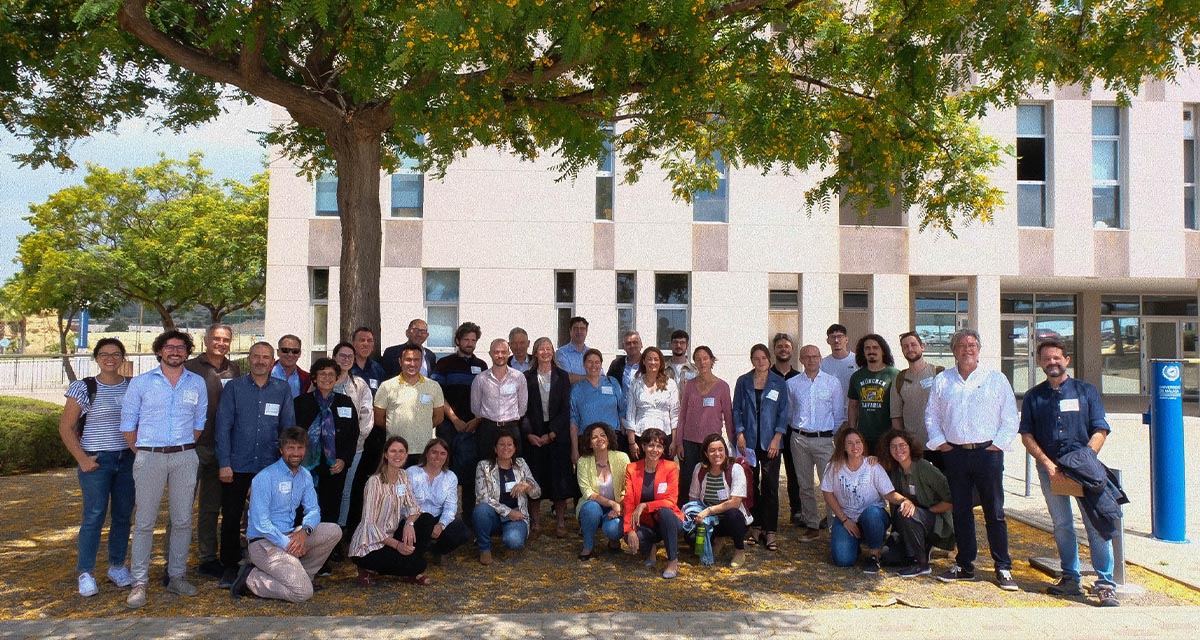
More space for innovative Mediterranean forest data partnerships
The report entitled A knowledge baseline on Mediterranean forests supported by innovation launched in July by ETC-UMA provides a highlight of what Mediterranean countries and institutions are doing to integrate new digital, satellite and Artificial Intelligence technologies into forest monitoring ...